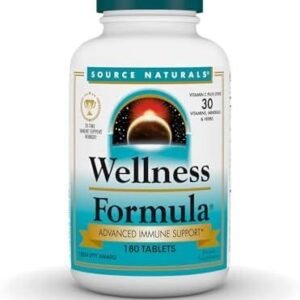In our fast-paced world, the conversation around health often leans heavily towards physical well-being, with gym memberships and diet plans taking center stage. Yet, the profound connection between mental and physical health remains an area that deserves equal attention. From the way stress can manifest as physical ailments to the role of regular exercise in boosting mood and cognitive function, the interplay between these two facets of wellness is undeniable. In this article, we delve into the vital link that exists between our minds and bodies, exploring the latest research, expert opinions, and practical advice to help you cultivate a more holistic approach to health. Whether you’re seeking to enhance your overall well-being or simply gain a deeper understanding of how to better care for yourself, the insights shared here promise to illuminate the intricate relationship that can shape our lives for the better.
Table of Contents
- Understanding the Interconnectedness of Physical and Mental Well-Being
- The Role of Exercise in Enhancing Mental Health
- Nutritional Choices that Support Both Body and Mind
- Strategies for Creating a Holistic Health Routine
- The Conclusion
Understanding the Interconnectedness of Physical and Mental Well-Being
The relationship between physical and mental well-being is a complex tapestry where each thread influences the other. Engaging in regular exercise not only strengthens the body but also releases endorphins, hormones that naturally elevate mood and promote mental clarity. Similarly, a balanced diet rich in nutrients fuels both physical health and cognitive function. To illustrate this interconnectedness, consider the following key points:
- Exercise: Reduces anxiety and depression symptoms while improving self-esteem.
- Nutrition: Affects mood stabilization and cognitive abilities.
- Sleep: Essential for physical recovery and mental resilience.
- Social Connections: Enhance both emotional support and motivation to stay active.
This synergy is underscored by research indicating that individuals who prioritize their physical health often report lower levels of stress and improved overall well-being. To further delineate this concept, here’s a simple comparison of the benefits:
| Focus Area | Physical Benefits | Mental Benefits |
|---|---|---|
| Exercise | Enhanced cardiovascular health | Reduced stress and anxiety |
| Nutrition | Improved immunity | Better mood regulation |
| Sleep | Increased energy levels | Enhanced cognitive performance |
The Role of Exercise in Enhancing Mental Health
Regular physical activity is a powerful tool in promoting better mental health. Engaging in exercise releases endorphins, often referred to as the body’s natural mood lifters. These neurochemicals not only enhance mood but also help alleviate feelings of anxiety and depression. One of the most significant benefits of incorporating physical activity into one’s daily routine is its ability to improve overall cognitive function. Studies have shown that exercise can lead to better concentration, memory retention, and problem-solving skills. By nurturing both mind and body, individuals often find an increase in resilience against stress and mental fatigue.
In addition to biochemical benefits, exercise creates opportunities for social interaction and connection, which are vital for mental well-being. Participating in group sports or fitness classes can foster new friendships and enhance a sense of belonging. Moreover, the structured routine that comes with regular exercise can provide a sense of stability and purpose. Consider the following benefits of exercise on mental health:
- Reduces symptoms of anxiety and depression
- Enhances mood and emotional resilience
- Boosts self-esteem and confidence
- Improves sleep quality
- Encourages social engagement
Nutritional Choices that Support Both Body and Mind
Maintaining a balanced diet is essential for enhancing both physical vitality and mental clarity. Incorporating key nutrients can bridge the gap between body and mind, fostering overall well-being. Here are some nutrient-rich foods to consider:
- Fatty Fish: Rich in omega-3 fatty acids, they boost brain function and mood.
- Leafy Greens: High in antioxidants and vitamins, greens like spinach and kale support cognitive health.
- Nuts and Seeds: Packed with protein, fiber, and healthy fats, they provide sustained energy and improve focus.
- Whole Grains: Foods like brown rice and quinoa help regulate blood sugar, preventing mood swings and fatigue.
To better understand how various nutrients correlate with mental wellness, consider the following table that highlights specific vitamins and their benefits:
| Nutrient | Benefits |
|---|---|
| Vitamin D | Boosts mood and ward off depression. |
| B Vitamins | Supports brain health and reduces anxiety. |
| Magnesium | Aids in relaxation and stress reduction. |
| Zinc | Improves cognitive function and mood stability. |
Strategies for Creating a Holistic Health Routine
To cultivate an effective holistic health routine, it’s essential to integrate fitness, nutrition, and mental wellness into your lifestyle. Start with a balanced exercise program that incorporates various forms of physical activity such as cardiovascular exercises, strength training, and flexibility workouts. Aim for at least 30 minutes of exercise most days of the week. Complement this with a well-rounded diet rich in whole foods, including fruits, vegetables, whole grains, and lean proteins. Prioritize hydration and limit processed foods to enhance both physical stamina and mental clarity.
Incorporating practices that foster mental health is just as crucial. Engage in activities that promote relaxation and mindfulness, such as meditation, yoga, or deep-breathing exercises. Maintaining a consistent sleep schedule is vital; aim for 7-8 hours of quality sleep each night to rejuvenate both mind and body. Additionally, consider the following techniques to enhance your routine:
- Mindfulness practices like journaling or guided meditation
- Social connections through regular interactions with friends or family
- Setting personal goals to maintain motivation and direction
- Periodic assessments of your mental and physical health progress
The Conclusion
In closing, the intricate relationship between physical and mental health is undeniably profound, underscoring the importance of viewing wellness as a holistic continuum rather than isolated components. As we’ve explored, engaging in regular physical activity, maintaining a balanced diet, and prioritizing sleep can significantly enhance not only our physical well-being but also our mental resilience and emotional stability.
As we navigate the complexities of modern life, it’s crucial to acknowledge that our bodies and minds are interconnected; by nurturing both, we can foster a more fulfilling and thriving existence. Whether it’s through adopting healthier lifestyle choices, seeking professional help, or simply allowing ourselves the grace to take a break, every step we take towards better health—both mental and physical—creates a ripple effect that can lead to lasting change.
Let’s continue to advocate for a comprehensive approach to health, recognizing that our growth requires a balance of body and mind. Remember, investing in your well-being is one of the most important commitments you can make, paving the way for not just survival, but a life rich in joy, purpose, and connection. Together, let’s embark on this journey toward holistic health and wellbeing, one step at a time.




